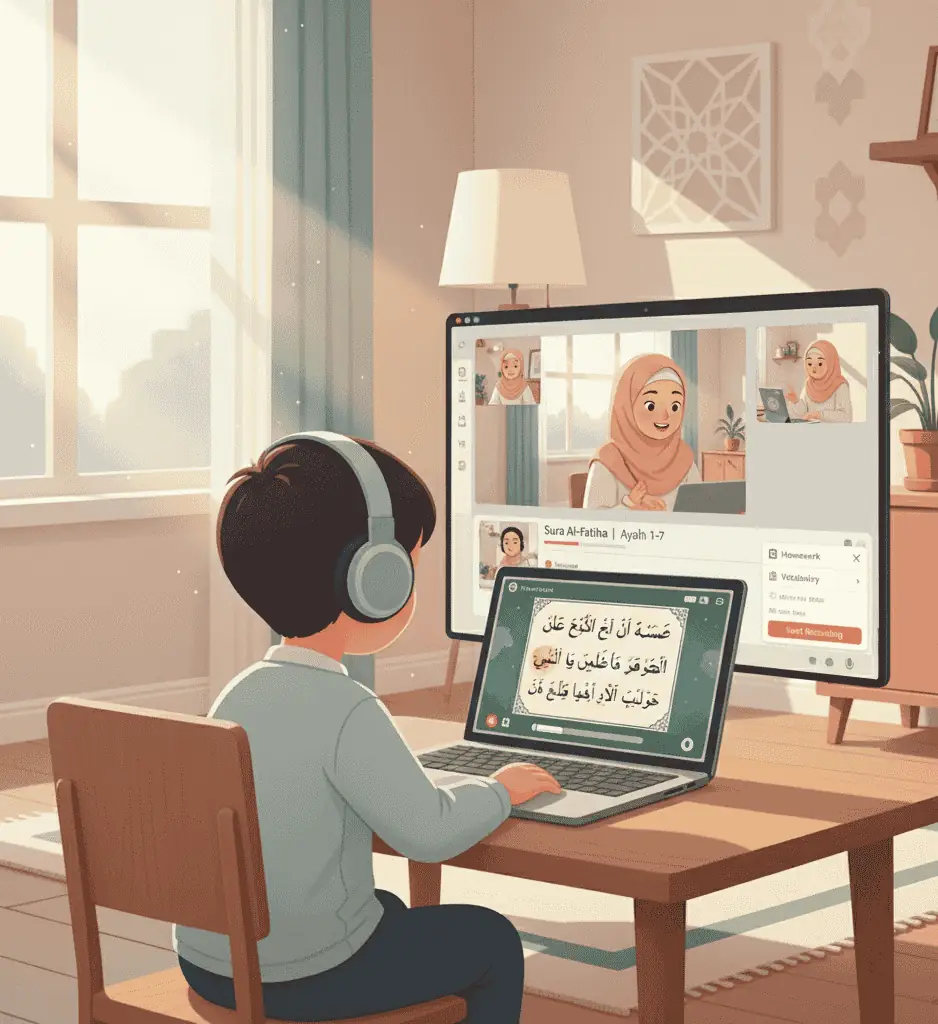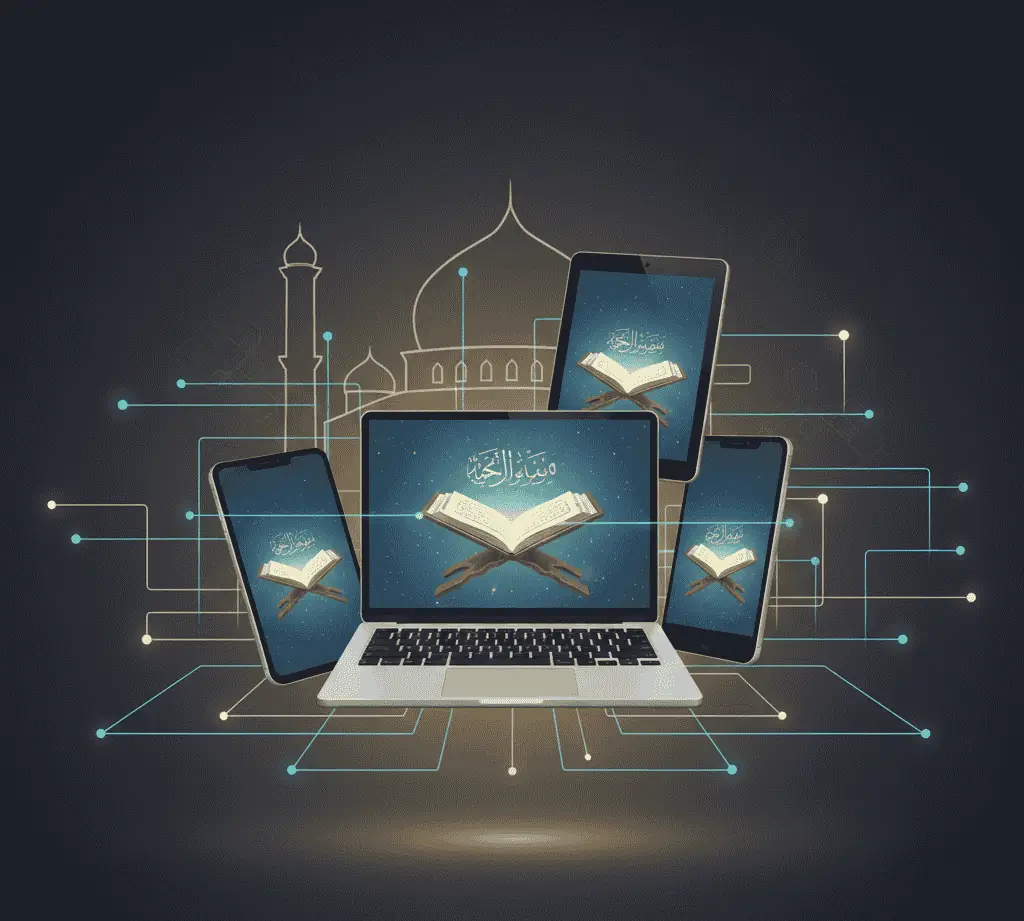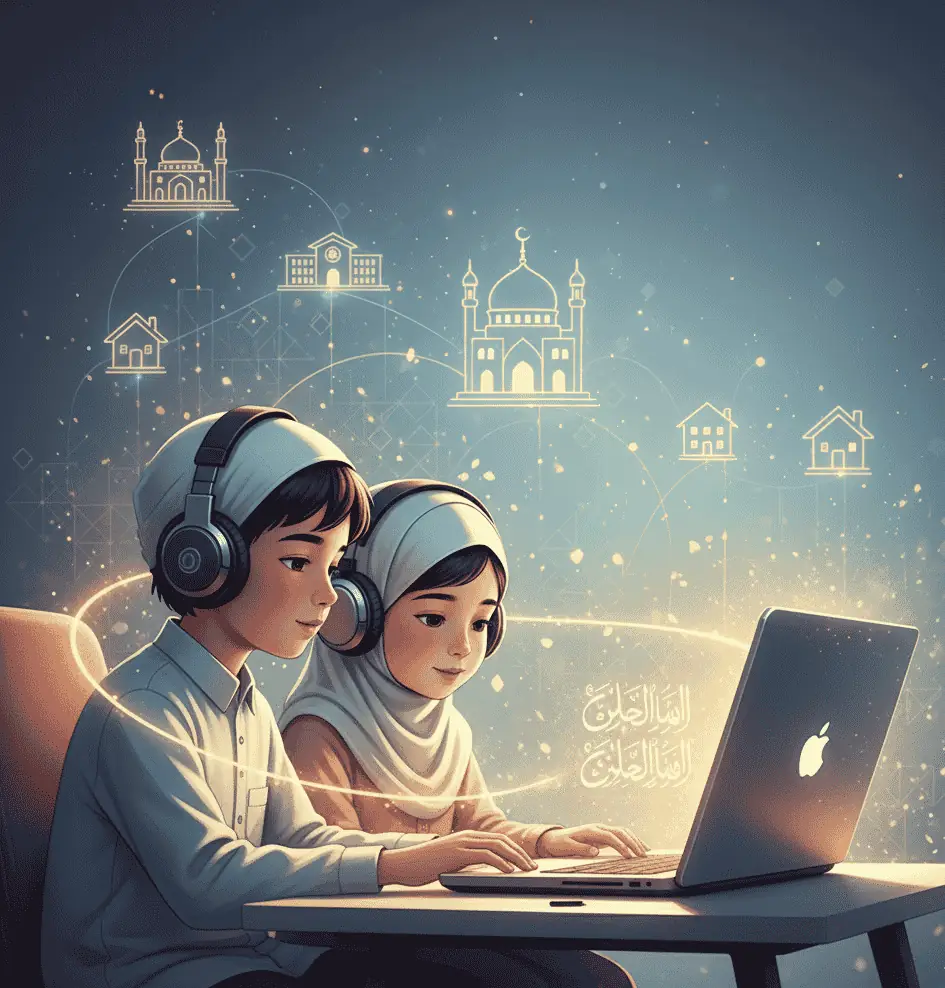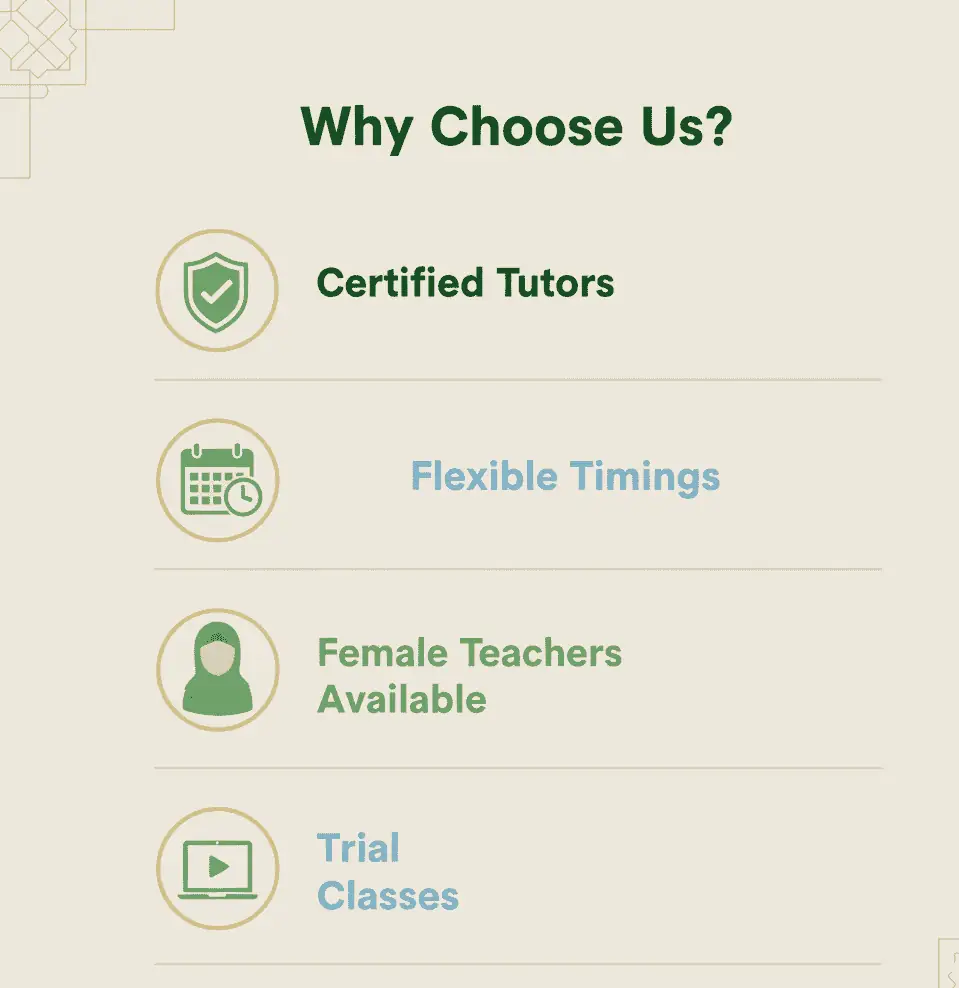Introduction – A New Classroom for an Old Blessing
In the not so distant past, when one was learning the Quran, it used to mean, evening lessons in the local madrasa, the home of teacher or the mosque.
In the present day, the same advice occurs in the virtual world during video calls.
Online Quran classes are transforming the ways of learning, memorization and recitation of the Quran by children and adults – linking families in Karachi to Cardiff, Seattle to Sydney.
This paper looks at the mode of operation of the courses, their advantages, and the way parents can select the appropriate program.
How Online Quran Classes Work – The Virtual Learning Experience

At its core, an online Quran class is a live session between teacher and student. The modern version adds powerful tools:
- Live one-to-one lessons – direct correction and focus
- Small group classes – siblings or peers learning together
- Interactive tools – color-coded Mushafs, slow audio playback, recording features
- Homework and progress tracking – parent dashboards
- Flexible scheduling – suited to US, UK, Australia, and Pakistan
This cycle — teacher models → student repeats → teacher corrects → student practices → review — builds lasting progress.
Why Parents Are Choosing Online Quran Learning

Access to Qualified Teachers
Learn from certified Quran tutors with ijāzah – even if they live in another country.
Flexible Schedules
Online classes fit around school, work, or family routines.
Safety and Choice
Parents can choose female tutors, review profiles, and sit in on lessons.
Cost and Convenience
No travel time, lower fees, more tutor options.
Continuity
Weather or travel doesn’t interrupt progress; lessons can be recorded.
Technology opens doors, but the teacher still leads the way.
The Real Benefits – What Online Quran Classes Deliver
Personalized Learning and Pace
Kids get short Tajweed drills; adults focus on recitation or meaning.
Strong Tajweed Integration
Color-coded texts and slow playback make pronunciation clearer.

Better Recitation Practice
Recording and replay tools help students self-correct.
Interactive Engagement
Digital badges and charts keep younger students motivated.
Parental Oversight
Dashboards and lesson replays keep parents informed and involved.
Technology That Helps – But Does Not Replace the Teacher
Modern tools include:
- Audio loops and slow playback
- Color-coded Mushafs
- Recording and self-review
- Progress dashboards
- Focused short live sessions
These enhance learning, but only a teacher’s live feedback perfects pronunciation and makhraj.
Special Programs: Hifz and Memorization Online
Structured online Hifz programs can be highly effective if they include:

- Regular live recitation checks
- Repetition and review cycles
- Parent dashboards
- Optional in-person ijazah exams
This enables remote learners to complete memorization with expert supervision.
Choosing the Right Online Quran Class – A Practical Checklist
Before enrolling, confirm the following:
- Live one-on-one or small group sessions
- Verified tutor credentials
- Tajweed support with color-coded Mushaf
- Child-friendly duration (15–25 minutes)
- Parental recording access
- Free trial lesson
- Flexible time zones
This ensures a personalized, authentic experience.
A Realistic Family Routine That Works
- Daily micro-practice: 8–15 minutes
- 3× weekly live sessions: 15–25 minutes
- Evening review: 5 minutes replay
- Weekly check-in: celebrate small wins
Small, steady steps build lifelong fluency.

Addressing Common Concerns Parents Raise
- Screen time: Keep sessions short and balance with printed Mushaf.
- Teacher-student relationship: Pick engaging, spiritually connected tutors.
- Teacher quality: Request sample lessons or reviews.
- Online vs in-person: Online classes often provide more consistency.
The Global View – How This Is Changing Islamic Education
Virtual Quran academies are transforming access.
Small communities now reach expert tutors, and global learners benefit from flexible, structured teaching.
As technology advances, digital Islamic education grows stronger – especially for Muslims in dispersed communities.
FAQs – Quick Answers for Parents
A: Ages 3-5 for light sessions; steady progress from 4–7.
A: 8-12 minutes for kids; 15–25 for adults.
A: Yes, with live correction and color-coded texts.
A: Yes, with structured plans and parental monitoring
Conclusion:
Online Quran classes complement, not replace, traditional madrasas.
They expand access, improve flexibility, and maintain authentic recitation through certified tutors.
Success lies in short daily effort, live teacher guidance, and a Quran-centered home.



